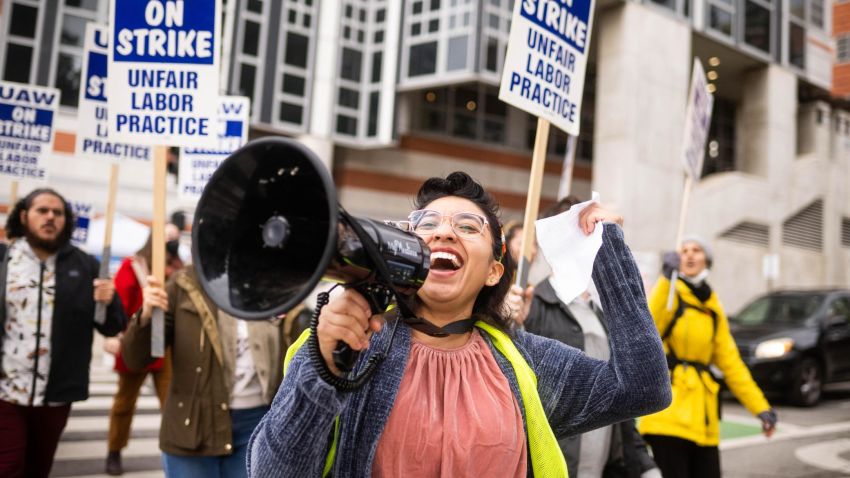The United Automobile Workers’ won big wage and benefit gains in tentative contract agreements with Ford, General Motors and Stellantis. Now, non-union companies are rushing to give their non-unionized workers raises, too.
Toyota, Honda and Hyundai all announced raises for their US factory workers within two weeks of GM and the UAW coming to the last tentative agreement, and before the union membership has even had a chance to vote on ratification.
Toyota said it’s raising wages by more than 9%, and Honda announced 11% wage hikes beginning next year. Hyundai said it will give workers in Alabama and Georgia a 25% raise over the next four years.
“The company is increasing its wage structure to remain competitive and to recruit and retain top talent,” Hyundai said in a statement Monday.
While the auto companies didn’t directly attribute their raises to the UAW, the UAW has said it will be targeting non-union factories in the wake of its big wins. Labor experts say the automakers’ moves are preemptive tactics to help block union organizing drives.
“All are raising wages to inhibit unions, prevent strikes, and in general limit labor power,” said A.J. Jacobs, a sociologist at East Carolina University, who has studied the rise of foreign automakers in the United States. Foreign automakers have tried to prevent unions in the United States in part by opening plants in the South, which has weaker labor laws and political leaders typically opposed to unions, he said.
UAW President Shawn Fain already encouraged non-union autoworkers to join the UAW, and Fain has called the non-union wage increases the “UAW bump.” The UAW hopes its new contracts with Detroit automakers will inspire other workers to unionize.
“One of our biggest goals coming out of this historic contract victory is to organize like we’ve never organized before,” Fain said. “When we return to the bargaining table in 2028, it won’t just be with a Big Three, but with a Big Five or Big Six.”
The tentative UAW deals give an immediate 11% pay raise to members, guaranteed wage increases totaling another 14% over the next four years and a cost-of-living adjustment that could bring wages up more than 30% by the time the contract ends in 2028.
Other non-union automakers with American factories, like Subaru, Volvo, BMW, Mercedes, and Tesla have not yet announced whether they will be offering raises of their own.
These companies have been elusive targets for the union in the past. In order for the UAW to make progress, the union will have to overcome fierce management resistance, employee surveillance, unfavorable labor laws and political leaders in the South who are hostile to unions.
Thomas Kochan, a professor at the MIT Sloan School of Management, said Toyota, Honda and Hyundai’s wage hikes won’t prevent the UAW from making inroads with workers.
“I don’t think these employer actions will insulate these companies from getting organized,” he said. “The UAW can also use these actions to show what a union can do for workers, not just on wages, but perhaps even more on working conditions like safety and other benefits.”

